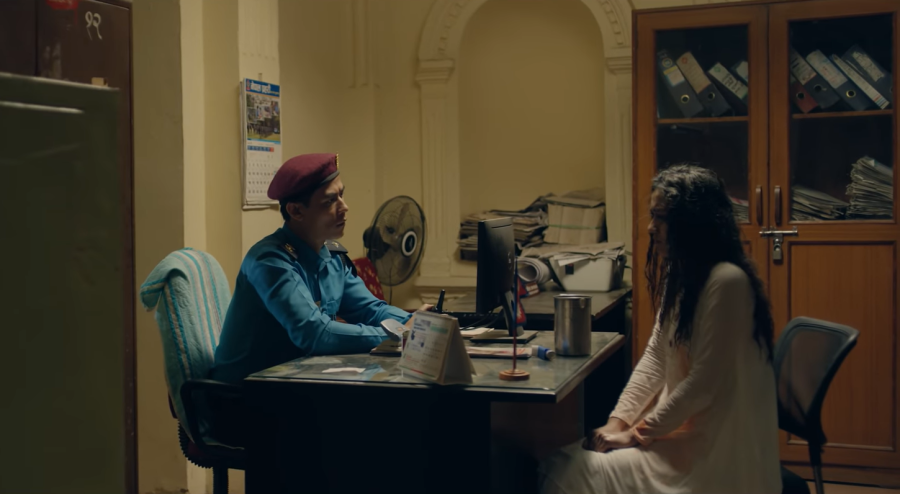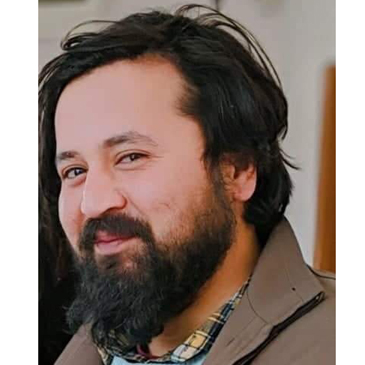Culture & Lifestyle
Nepali true crime: ‘Crime Files’, ‘Crime Patrol’, and ‘Chapali Height 3’
Even with mediocre direction and sub-par acting, ‘Chapali Height 3’ feels more refined than ‘Crime Patrol’ and ‘Crime Files’.
Abhimanyu Dixit
(Editor’s note: The review contains spoilers for ‘Crime Files’, ‘Crime Patrol’, and ‘Chapali Height 3’.)
True crime documentaries, shows, and films are my guilty pleasures. Since the Covid-19 pandemic began, I have consumed these with a voracious appetite, and when I am done watching one, I immediately search for more and save many of them to my watch list.
I have invested too many hours in true crime-especially from Netflix. I've binged on an entire series of 'Tiger King', about criminals and endangered animals, and 'Wild Wild Country', about terrorists and cults. I've lost my sleep over the fictionalised retelling of serial killers in 'Mindhunter' and drug traffickers in 'Narcos'. Documentaries like 'Fyre' and 'Bikram: Yogi, Guru, Predator' have left me bewildered for days. There's hardly any true crime show that doesn't make it to the top 10 on Netflix.
True crime is a genre that cinema borrows from literature, which are emotion-laden crime reports of real people, who perform the most criminally heinous acts of fraud, sex-related crimes, and even murder.
In Nepal, true crime exists in only one form-the police procedural. These are investigation stories told from the point of view of police officers. Remember the 'Prahari Karyakrum' on Nepal Television (NTV) in the 90s or 'Aparadh' on the same TV channel. Both were police procedural films sponsored by Nepal Police.
Rules for the Nepali police procedural films were set in stone over thirty years ago. Then, the recording medium was VHS tapes and editing was done in analogue. Today, even with fancy digital film cameras, and high-end editing software, police procedural films remain the same.
Based on what I've seen in the five episodes of 'Crime Patrol', on Galaxy 4K, and 16 episodes of 'Crime Files', on Kantipur TV, both follow the same mundane structure. Both open with a crime (mostly murder) or build up to one. Then, we are introduced to obvious suspects. We are also introduced to a police officer who, mind you, has no other identity besides that of their job. The officer investigates mainly by interrogating suspects. The officer might make mistakes at first, and time starts running out on them.
Then, the officer is pressured by their seniors to solve the case. In the end, the suspects come forward with the truth-and the culprit is caught. The narrative intrigue is a who-done-it? And will-they-catch-the-culprit?
Both series wholeheartedly thank Nepal Police for their participation and support. Even after watching the entire case story, you'll never remember the officers' names or know their likes or dislikes because they are not portrayed as real people. These officers exist only to solve crimes. The moral of the story-'good police work solve all crimes'.
'Chapali Height 3', the latest film from the 'Chapali Height' franchise, is also packaged as a true-crime police procedural. Even though the series is a fictional account, 'Chapali Height-I' begins with the line “Based on a true story of an encounter”, and the third film's credit roll scrolls through newspaper headlines. We don't talk about the second film because it's really bad!
'Chapali Height 3' follows police officer Prahlad Mishra (Mahesh Tripathi) as he investigates the murder of a businessman, Paras (Amir Gautam). Mishra begins by interrogating the primary witness of the murder, Shraddha (Swastima Khadka). She recounts that Paras had offered her help when her car broke down on a rainy night. She adds that three hooded men appeared out of nowhere, overpowered her, and killed Paras.
What follows matches the beats of the police procedural crime film—Mishra interrogates, makes mistakes in his investigation, is pressured by senior officers, time runs out, and manages to uncover the truth in the end.
But, the writing of 'Chapali Height 3' is better than 'Crime Patrol' and 'Crime Files', making the movie feel like a refined version of the two series. The first thing writer Aakash Baral got right was the investigating officer's characterisation. Unlike the two crime series, in 'Chapali Height 3', the police officer's character feels fleshed out. Baral introduces Mishra as a corrupt cop. Almost immediately, we are shown why he is corrupt. Mishra is going through a rough divorce and is very angry and insecure at a doctor, with whom his wife and daughter now live. Mishra aims to build a mansion in Kathmandu just to show it off to his wife's new family.
Mishra is far from a likeable protagonist. He is arrogant and abusive to everyone. He is a misogynist who slurs at his wife, physically abuses the women he is interrogating and ridicules an LGBTIQ coded character. But you will never see this version of Nepali police in either of the crime shows on TV. So, I respect the makers of ‘Chapali Height 3’ for this.
In the film, Baral also uses the unreliable narrator trope effectively. Shraddha changes her statement of the crime multiple times. We are treated to different flashbacks of the night in question with each iteration.
Also, Baral's choice to not write any dialogue for Arpan Thapa's character, an unnamed assassin, should be lauded. This decision makes Thapa's character appear menacing in his scenes. And, in hindsight, it made sense because Thapa turns out to be Shraddha's fabrication (oops, spoiler!).
However, the director's work in 'Chapali Height 3' is mediocre. For a genre that relies heavily on dialogue, director Nikes Khadka puts no effort to craft compelling dialogue scenes. With zero blocking, actors freeze on their mark and deliver their lines. Nikes tries to create drama with tight, shaky singles, but it doesn't work. It only robs the audience of active participation because we cannot read other people's reactions in the scene. The editing by Dhirgha Khadka doesn't help either. For a film that jumps between multiple flashbacks, there was enough for Dhirgha to work with, but he chooses to play it safe and stick to the conventional rule book.
‘Chapali Height 3’ has a cast who have proved their brilliance in other projects, but their performance in this film is lousy. It feels like Nikes had instructed his actors to perform within a single dimension-and actors obey without questioning the purpose. Arpan Thapa is asked to act menacing-so everything he does feels almost like in slow motion. Laxmi Bardewa is instructed to act irritated-and she does that with multiple facial expressions in the same shot. Mahesh Tripathi is the only one who seems to be putting in an honest effort. This is either because his character is more fleshed out in the script or because this is his first major motion picture; either way, his effort is visible.
Four directors helm 'Crime Files': Hem Raj BC, Anil Khadka, Firoj Khadka, and Suraj Shrestha. They have directed 16 episodes so far. In contrast, 'Crime Patrol' has released three cases directed by Bishal Sapkota, Samar Niraula, and Bikash Neupane.
Since the scripts for both series are rigidly structured and have boring, one-dimensional characters, it's only up to the directors' talent to make their films interesting. But alas, just like 'Chapali Height 3', the directors involved with the series are not as effective. Out of all the directors who have worked in the two TV series, only Bishal Sapkota stands out with his Crime Patrol episode ‘Modus Operandi'. Even though the script (by Samar Niraula) is repetitive and lethargic, Sapkota's direction is precise and mature. My favourite moment in the film is him directing Amjad Prawej's monologue towards the end of ‘Modus Operandi’. The scene is genuinely scary, and Prawej's performance tops all others.
Dialogues combined with music can be such an important tool to maintain the suspense and drop clues. But in ‘Chapali Height 3’, the dialogues feel repetitive, and the music, by Nobel Freaks, feels generic. Out of the two tracks in the film, the original title track 'Chapali Height', sung by Sabin Rai, stands out, even though it was composed over ten years ago.
I've met with a lot of the filmmakers mentioned above. And I can bet that they have access to films from all over the world. They are aware of the variety of forms that true crime exists in today.
True crime is a very lucrative business worldwide, and the makers are aware of the audience's appetite for it, so why is it that our filmmakers only stick to tried and tested formula films? I hope filmmakers are able to look past the obvious suspects and investigate further to explore and reveal genre-bending stories that are unpredictable.




 20.72°C Kathmandu
20.72°C Kathmandu















